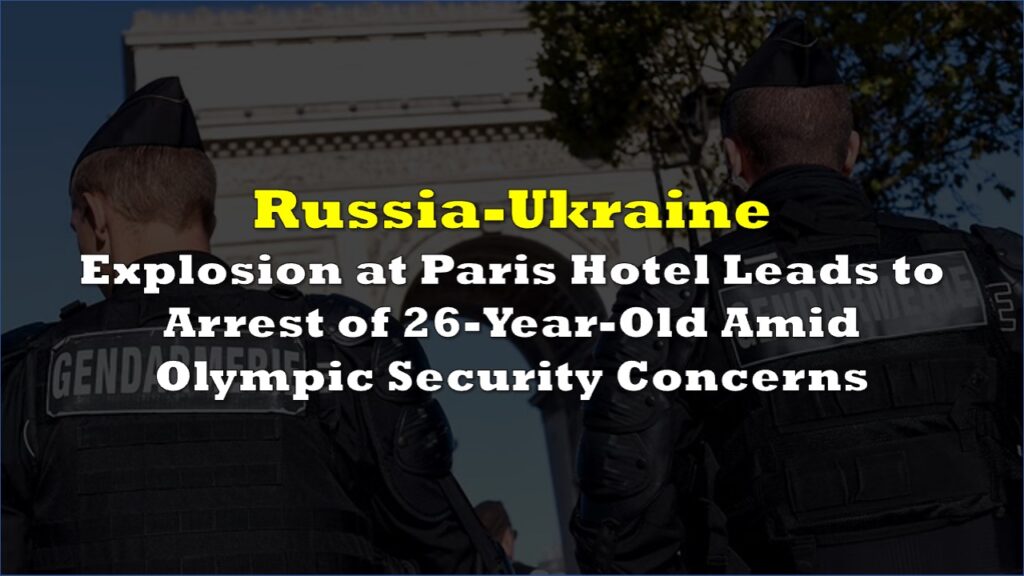Germany’s Economy Minister Robert Habeck has come close to accusing the United States and other gas exporters of “increased” prices as a result of the Ukraine war’s consequences. The federal minister said that even “friendly” countries “sometimes achieve moon prices.”
Habeck particularly centered on Washington DC, saying the country turned to Germany and Europe when oil prices shot up.
“As a result of which, national oil reserves were tapped in Europe as well. I think such solidarity would also be good for dampening gas prices,” said Habeck.
The minister’s call juxtaposes an earlier report saying Berlin may earn roughly 10 billion euros by capturing windfall earnings from energy corporations benefiting from market disruption, according to Finance Minister Christian Lindner.
After skyrocketing revenues at some energy companies sparked public concern, Chancellor Olaf Scholz’s ruling coalition supported European Union proposals to tax windfall profits.
Habeck then turned to the EU Commission to discuss the issue with friendly states as well, adding the global organization “should bundle its market power and orchestrate a clever and synchronized purchasing behavior of the EU states.”
However, this might be a tall order for the region as divisions persist amongst EU member states with varying objectives and exposure.
Nevertheless, among the actions the EU has been considering to address soaring gas prices include putting price caps on natural gas used for power generation, capping a price ceiling on gas imports from Russia, and suspending trading on power derivatives markets.
“Have him burn some more coal”
Habeck’s comments did not sit well with some pundits. The country has been hawkish with its goal to eliminate the dependency on Russian energy exports, as well as its own nuclear sources.
However, Germany is facing an energy crisis. It is rushing to fill its gas reserves ahead of the winter season. This has been particularly challenged by the indefinite closure of the Nord Stream 1 pipeline and the recently discovered leaks on the natural gas conduits that render them unusable at the moment.
Since the sanctions have been imposed on Russia and its exports, Germany–Europe’s largest energy exporter–has been importing its gas from Norway and doubling up from other sources.
On the flip side, it is also closing down its last nuclear reactors. But given the electricity grid instability, Berlin since has had to come to a compromise: phase out nuclear by 2022 but keep two of the last three remaining plants running in reserve until mid-April next year.
Hayman Capital Management CIO Kyle Bass called the federal minister’s comments “ridiculously ignorant,” highlighting Germany’s exit from nuclear led to its dependence on Russian gas.
“Germany has dug its own grave. If Habeck doesn’t like the price from US suppliers, then have him burn some more coal,” he tweeted.
The marginal LNG cargo pricing is up to the global markets. Germany 🇩🇪 has dug its own grave. If Habeck doesn’t like the price from US suppliers, then have him burn some more coal.
— 🇺🇸Kyle Bass🇺🇦 (@Jkylebass) October 5, 2022
While Berlin phases out nuclear sources–seemingly a response to growing climate concerns–it has ironically been increasing its dependency on coal as a power source.
Hey Germany, Please tell me more about how you hate Nuclear Power? #Uranium pic.twitter.com/gIRrxA5DM5
— SmallCapSteve (@smallcapsteve) October 5, 2022
Germany’s nuclear energy policy has been a point of debate among the country’s political parties. Scholz’s own party Social Democrats and the Green Party have opposed extending the life of the nuclear plants while the Free Democrats have been pushing for it.
Information for this briefing was found via Noz, Bloomberg, and the sources mentioned. The author has no securities or affiliations related to this organization. Not a recommendation to buy or sell. Always do additional research and consult a professional before purchasing a security. The author holds no licenses.









